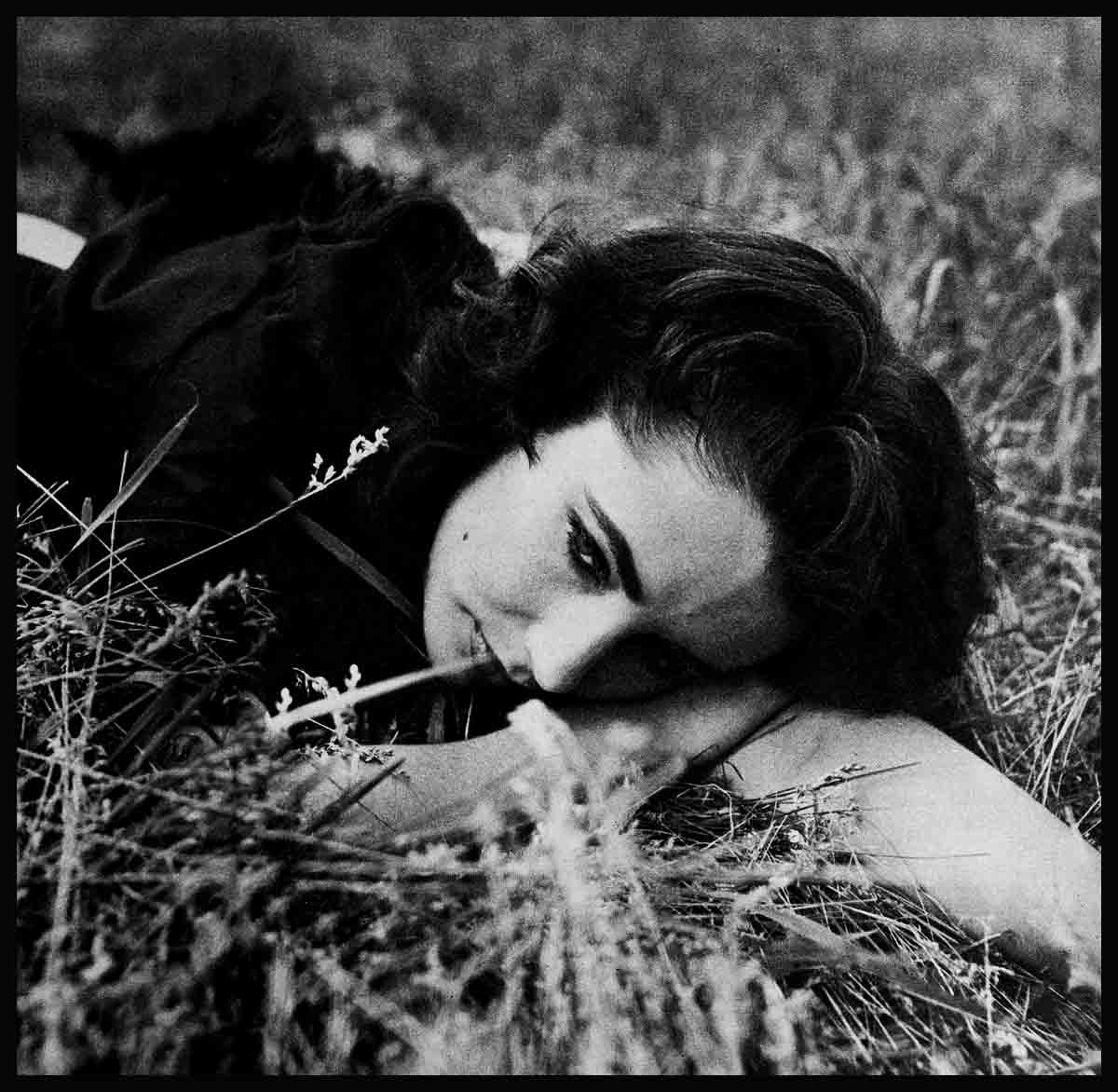
Elizabeth Taylor: “Mike, These Tender Things Remind Me Of You”
One gray day, three months after Mike Todd’s death, Elizabeth Taylor Todd faced the hardest task of her life: packing away, sorting out, disposing of the remnants of her marriage—Mike’s old belongings, the things that had been precious to him and now would never be used again. And on that day—despite the pleadings of friends—when she locked herself in the Palm Springs house she had shared with Mike and went, alone, through the dresser drawers, the always-packed suitcases, the closets, the empty rooms, she allowed herself for one last time to indulge in her memories. Allowing them to become, for eight hours, the present, even though she knew by then that if she were to build a new life for herself, she must begin living in the present and future. Not in the past. She had to forget what had been, and come to terms with what was left for her: life, her children, her work, her empty heart. Still, there were some things too precious to give up, some things that she did no pack away in the huge cartons of clothes and shoes and books that she sent to charity in Mike’s name. Those few things she brought home with her. She keeps them now in her room; she shares them with only those she loves the most.
These foolish, tender, beloved These memories of Mike . . .
LIZA’S FIRST DRESS
Liza hadn’t been even twenty-four hours old when Mike bought it. “Look,” he had boomed, in that big voice that could never stay quiet enough for a hospital room. He had flopped into the chair by Liz’s bed and his fingers had fumbled with the silver ribbon and the gold wrapping paper of one of New York’s most exclusive stores.
He held it up. Dangling from his big hand it had seemed incredibly small, incredibly lovely. Pink organdy, softened for a baby’s delicate skin, edged in lace, smocked at the yoke and the sleeves. “You like it?” he had asked anxiously.
Liz, still weak and exhausted from her third Caesarean—and this one the hardest, most dangerous of them all, performed when she was only six months pregnant—had smiled. “Of course I do. It’s beautiful, Mike.”
Mike’s face relaxed. “That’s good. Because I bought six more in different colors.”
Despite herself, Liz laughed. “Oh, Mike, that’s ridiculous. A baby—a newborn baby changes so fast. I mean, she grows every day. A month from now she won’t be able to wear that one, let alone six more. You send them back, hear?”
“Then I’ll buy her new ones. Don’t tell me about women and clothes. I know they like to change off. I’ve got a wife who buys fifteen hats at a time. Maybe you heard?”
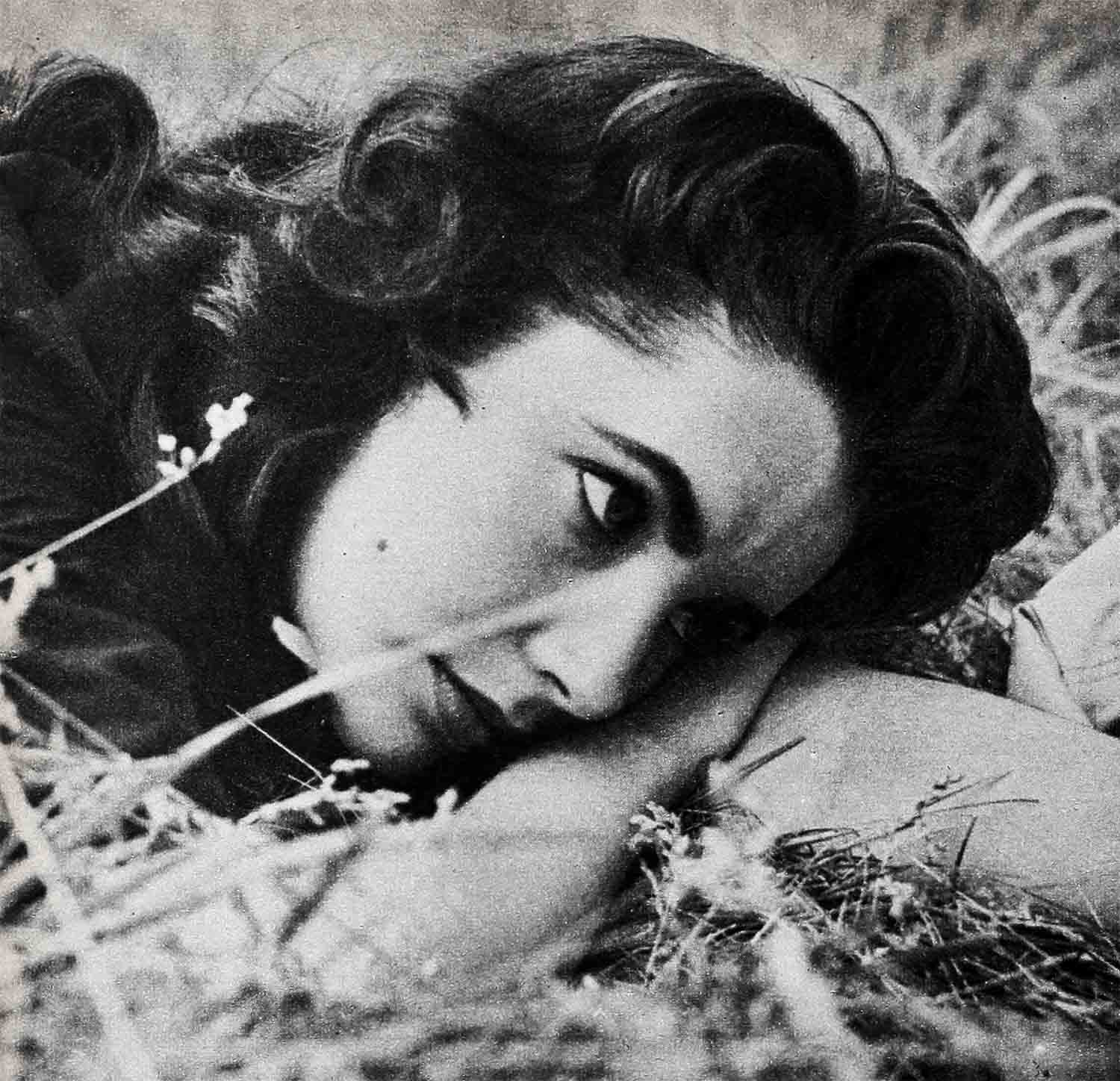
pink fluff in a hospital room . . . a picture-frame . . . and a father’s love for his daughter . . .
Liz hitched herself up in bed a little. “Well, for your information, a new baby doesn’t even like dresses at all. She likes a diaper. Or nothing. That’s what she likes. Now, a full-grown woman . . .”
She got no further. Mike had reached over suddenly, buried his face in her neck. “You’re not a full-grown woman. You’re my girl. My girl, Liz. Aw, Liz, if anything had gone wrong. I’d have killed myself. I swear I would. I was so scared, baby. I was so scared . . .”
Over his head, Liz had closed her eyes against the sudden tears. One hand rested gently on her husband’s head. “Nothing happened, sweetie,” she had soothed. “I’m fine, we’re fine. In a few weeks we’ll take the baby out of the incubator, we’ll take her home with us. We’ll dress her in her pretty pink dress and we’ll . . .”
Instantly Mike’s head had raised. His eyes laughed. “So we’ll keep the dress, huh? And tomorrow I’ll get some the next size, since she’s planning to grow so fast. All right?”
It was all right.
When Liza outgrew the pink organdy, Liz had wanted to send it, along with some of her other things, to the baby hospital in Hollywood. But Mike had stopped her. “I want to frame it,” he said.
“Frame it? You’re out of your . . .”
“To remember Liza by,” he had insisted. “We’ll hang it on the nursery wall in a nice gold frame.”
“But we don’t need to remember Liza,” Liz had protested. “We have Liza!”
But in the end she let him have his way. And now the dress hung not in the nursery but in Liz’s room, the first of her keepsakes. A memory of the day she had given Mike a daughter, a memory of the side of Mike Todd nobody knew but her—sentimental, loving, generous.
A memory of a rough voice, whispering into her hair, “My girl, Liz. If anything had happened to you . . .”
A reminder always that whatever happened, however her heart broke, she had to keep herself safe. For Mike. For his daughter. For his memory.
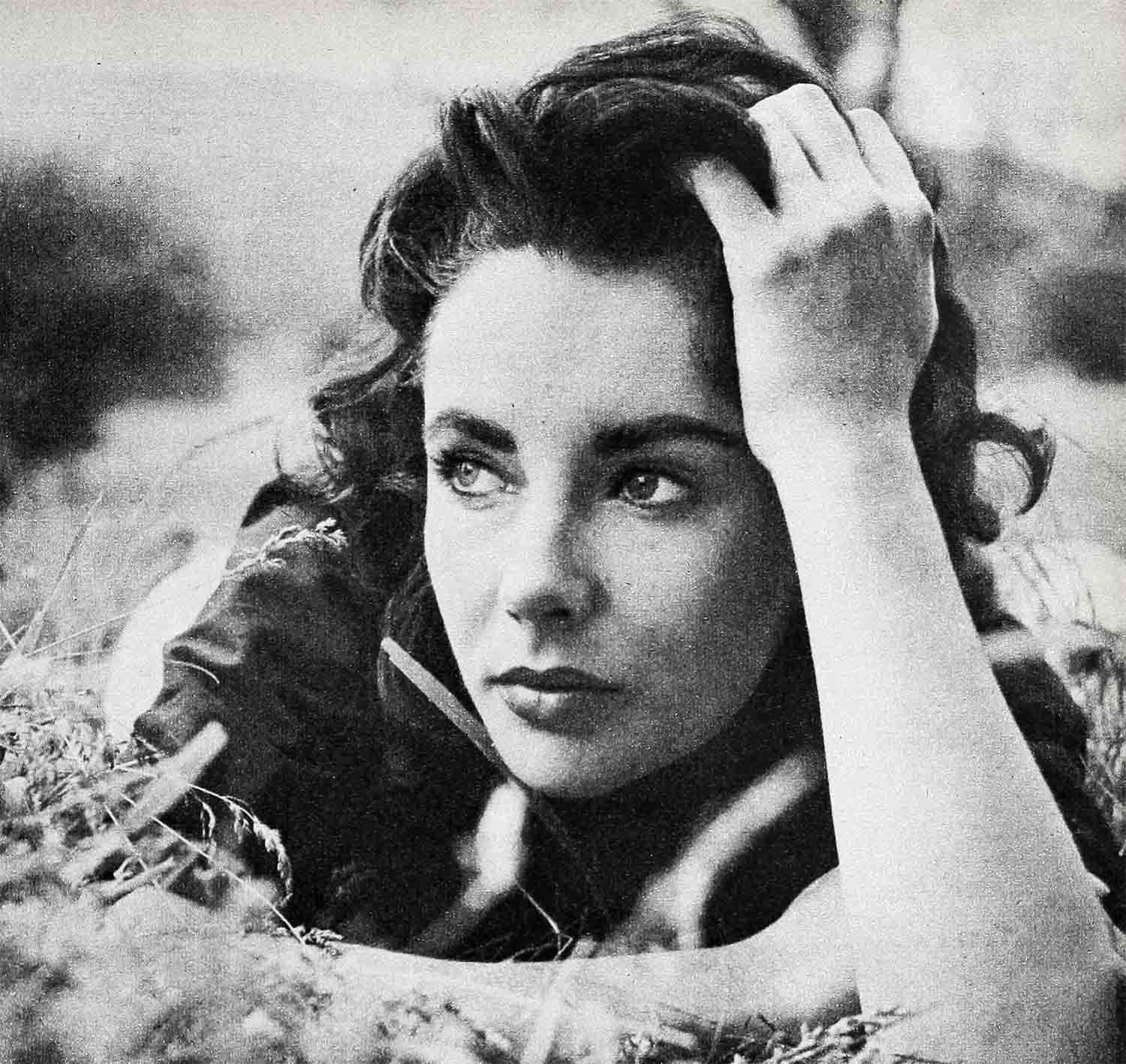
wonderful anecdotes by the man who died with Mike . . . words that make Mike live again . . .
MIKE’S WEDDING RING
She never knew who brought the ring back to her. It happened some time in those first terrible days after the tragedy—the days when she was doped and drugged against anguish. At some point in that black mist of pain, someone had brought in the plain gold band and said to her: “They found Mike’s ring, Liz. We thought you would want it.”
Half unconscious, she had opened her hand for it. Without knowing what she did, she slipped it onto her third finger, left hand. Then she drifted off into nightmares again.
But when she awakened finally, there it was, still on her finger, a dozen sizes too large, covering her own narrow wedding ring. She had stared at it uncomprehendingly for minutes until finally a friend said hesitantly, “We wanted to take it away from you, while—while you were out. We thought—it might fall off and get lost. But every time anyone tried, you closed your first . . .”
She nodded. She didn’t remember, but she approved. That ring, once so shiny, now covered with a thousand tiny dull scratches—mementos of death on the hard, barren rocks—was hers, now, and hers it would always be. Just as the memory of the night Mike had first put it on was hers forever . . .
She hadn’t been well that night, February 2, much as she wanted to be. It was so ridiculous—her own wedding, hundreds of friends, a beautiful home in Acapulco for the party—and she with her back acting up again, scarcely able to move. Mike talked of postponing it till she felt better, but she wouldn’t hear of that. “Remember the time you asked my girlfriend what was the best present to follow the Rolls-Royce and the mink coat and the diamond tiara? She said, ‘A plain gold band.’ And she was right. I’m not waiting a single day more . . .” So they carried her in a chair from the house to the garden where the ceremony took place and there she took from Mike her wedding ring and slid his gently onto the third finger of his left hand . . .
Then, an hour later, while everyone was eating and drinking champagne and the sound of laughter echoed through the clear night air—the first flash had come. Suddenly the sky was in flames—brilliant reds and golds shot across the heavens, licking at the stars.
“Oh!” Liz had screamed. “Mike!” Involuntarily her hands shot up to cover her face. “What—what—?”
Mike had turned to her, delighted. “Cantinflas arranged it. It’s a surprise for you—his wedding present. Fireworks!”
In a minute, Liz, too, had raised her eyes, had smiled and said “Oooooh,” had tried to relax. But for that one moment, that first second in the flash of light, she had been stabbed with terror, unreasoning, absurd terror—of flames, of the sky, of death.
Now, of course, no one believed her. “Everyone remembers premonitions after something terrible happens,” they told her. “You don’t remember all the ones you had that didn’t come true . . .”
That was so, of course. But what need had she, Liz Taylor, widow, of the false ones? Turning Mike’s ring on her finger, thinking aloud that she would get a guard for it as soon as she could, to keep her from losing it, she knew that the one true one was quite enough for any one woman in a lifetime. The ring would mean a great deal to her all her life. It would mean tenderness and love and a marriage that had been indeed a joining of two people to make one. But behind that, there would be the other memory as well. Flames—the night sky—her voice, crying, “Mike—”
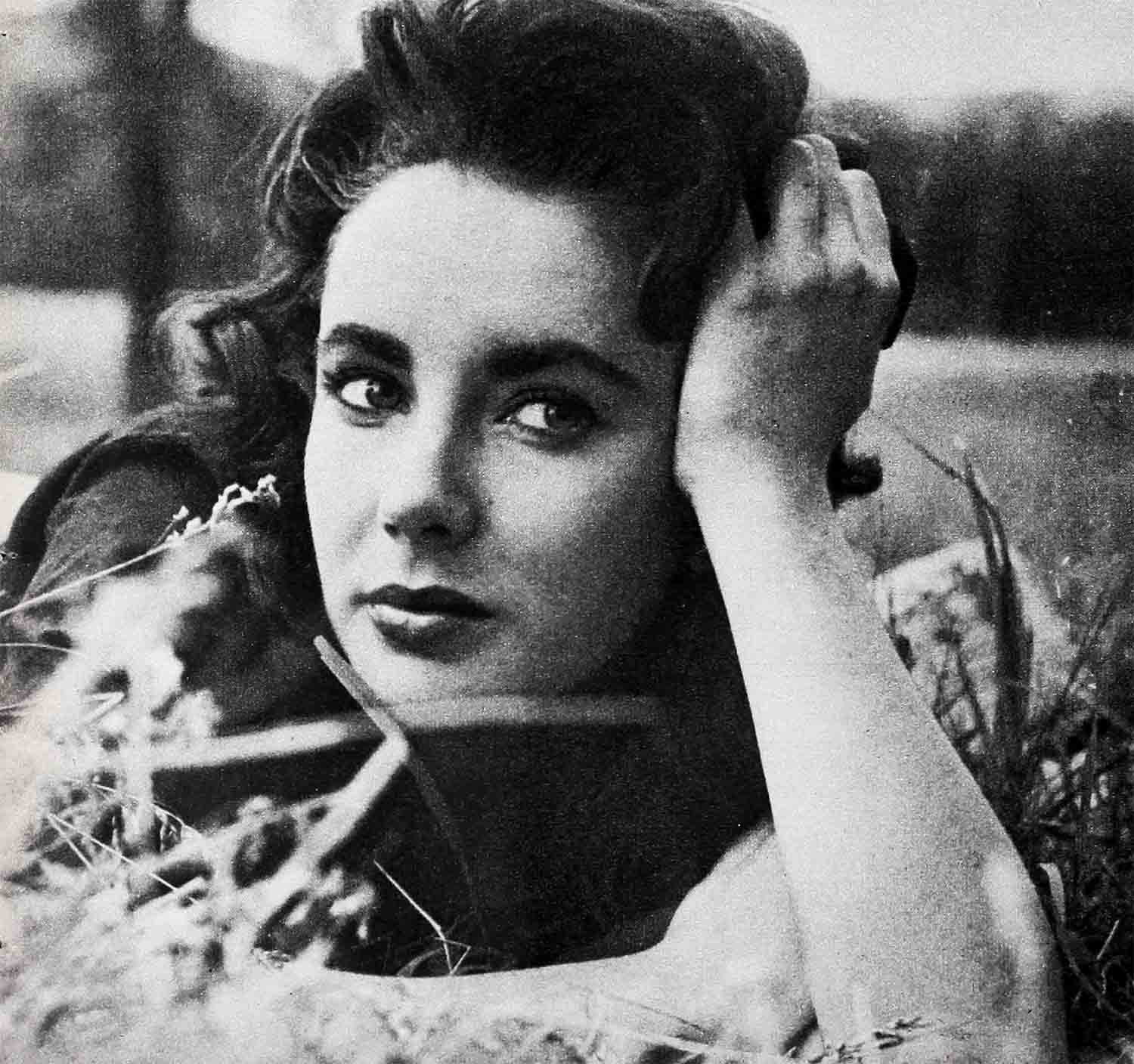
memories of Hong-Kong, the city they loved . . . and of the house that was never built . . .
THE DEATH NOTICES
Those she knew she should throw away. The doctors were right. She had no business keeping anything that destroyed her precarious hold on herself the way the clippings did, and the telegrams. Time after time, she told people later, she wrapped them in a bundle and deposited them in a wastepaper basket in Palm Springs. But she always laid them neatly on the top, because she knew she would take them out again, for one last look . . .
The last words about Mike.
There had been no eulogy at his grave. His burial had taken place during the Jewish month of Nisan, an officially joyous period preceding the Passover feasts. Funeral orations were not allowed, and Mike, who had never given up his Jewish heritage, would have wanted it that way. But over the grave his son was asked to say a few simple words before rising with Liz to read the prayer for the dead. And with his head bent, his eyes on the great dark coffin, Mike, Jr. had said simply: “He was not only a wonderful father. He was the greatest human being I have ever known.” Even through Liz’s fog, those words had penetrated.
She kept the newspaper story that recorded them.
And the others, the other words:
Sam Goldwyn: “The motion picture industry and the entire entertainment world will miss him. For me, I mourn him as a friend. . . .”
George Seaton: “Like a true friend, he was often critical, always outspoken. He had disdain and contempt for the defeatists and the apathetic. . . .”
Jack Warner: “The world has lost one of the greatest showmen of our time.”
Buddy Adler: “He brought excitement back to the business. Not just as a producer. As a man. . . .”
Loving words, admiring words. Words spoken by some of the same people, perhaps, who had panned Mike so for that Madison Square Garden party that was such a flop. Were they, then, hypocritical words?
No, they were not. They were no more hypocritical than Mike himself had been—and he was a mass of contradictions—tender and rough, generous and money-hungry, loud and refined by turns.
She kept them because Mike had been worth so many different opinions, from so many different people.
Just as she kept the telegram from a woman who hadn’t known him at all. “The President and I,” it read, “extend our deepest sympathy.” Signed, “Mamie Eisenhower.”
She couldn’t throw that away, either.
If they delayed the healing of her heart—well, that was a necessary risk. In a way, they weren’t even hers to destroy. They were Mike’s eulogy, written as Mike would have wanted it—in newspaper ink, and in the hearts of his friends.
They lie now, in a cloth-covered scrapbook, on the table in Liz Taylor’s room.
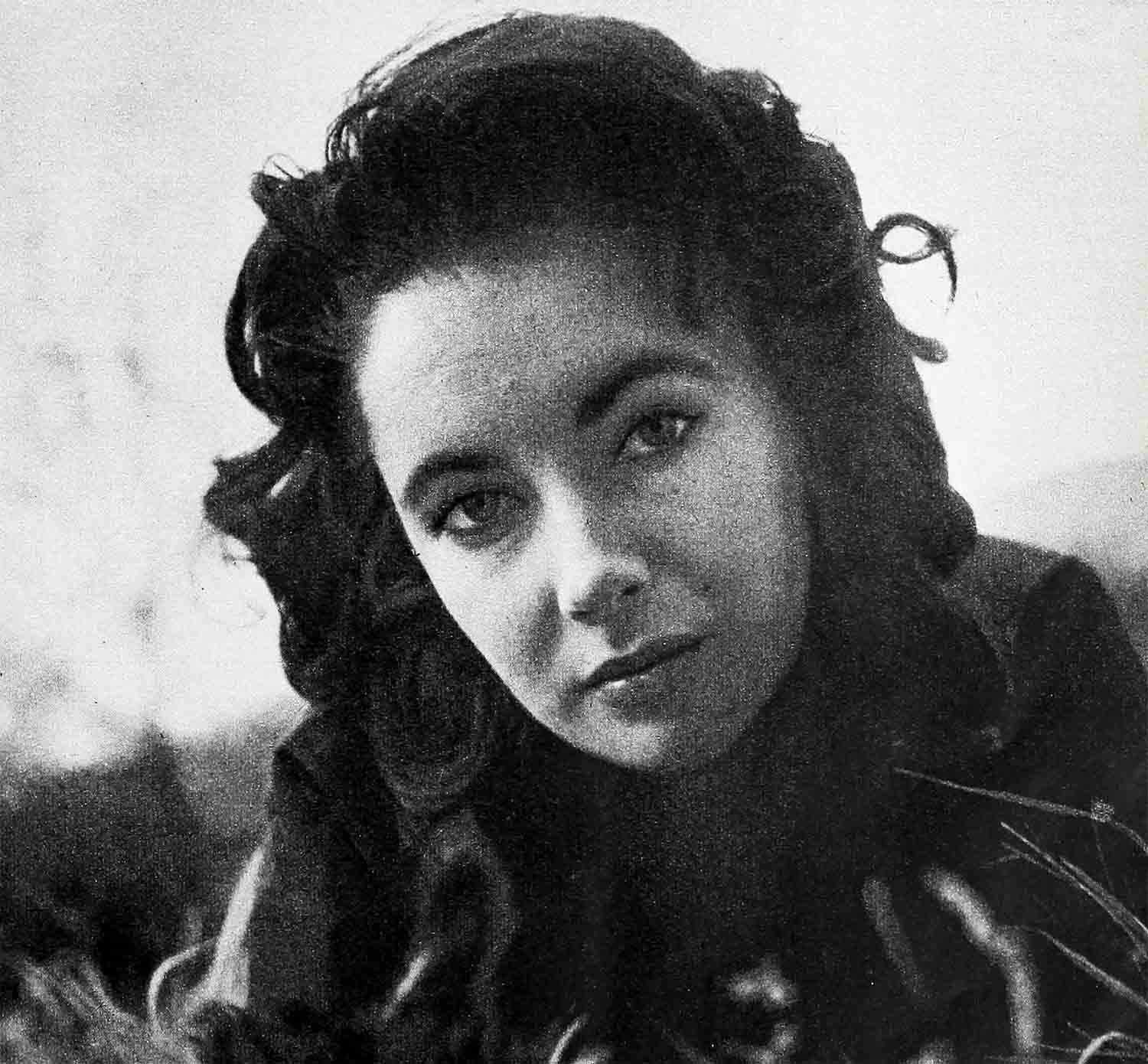
pain and laughter . . . marriage in Mexico . . . and a premonition of death . . .
THE CHINESE STATUE
The jade Buddha couldn’t have been thrown away in any event. It cost a fortune—the way everything Mike and Liz bought on their trip around the world had cost a fortune. But this one they had bought not because of its beauty or value—but because it symbolized Hong Kong to them.
“We’re taking it home,” Mike had told people in Hong Kong, “to remind us that we’re coming back.”
They were both in love with the International City.
“It’s like,” Liz told her husband, “it’s like meeting you turned into streets and houses and millions of people.”
He knew what she meant. Hong Kong was like Mike—a city of fantastic wealth—and incredible poverty. Modern steel buildings collided with tiny Chinese wooden temples. Two-ton trucks and rickshaws passed each other in traffic. In the house where they stayed with old friends of Mike’s, they sat and ate and slept on the floor—but on cushions of the softest, finest material brought in by quiet, smiling servants.
They had grinned at each other happily.
The next day they weren’t smiling any more. In the middle of the night Liz was awakened with violent cramps in her abdomen. A doctor, hastily summoned, had diagnosed appendicitis.
“We can take her to the hospital,” he offered.
Liz shook her head. Suddenly she was a child again. Suddenly Hong Kong wasn’t a dream city any longer, but foreign, alien soil. “No. I want to go home.” She began to cry, to twist on the pallet.
Sweating, Mike took her hands. “Sure, Baby. Sure, I’ll take you home. . . .”
He did, too. He cut short their trip and flew her home to be operated on in California. A week later she was smiling again, and telling everyone how they were going to live in Hong Kong. “It’s perfect. We’ll build a marvelous house with sliding doors and oil-paper windows. . . .”
“But it’s dangerous, living so close to Red China. Even if Hong Kong is international now, you never can tell.”
“I don’t have to worry,” Liz told them. “If anything were to go wrong, Mike would bring me home. . . .”
Now the Buddha sits on Liz’s writing desk, smiling vacantly into air, too dear a symbol to be given up—too precious a memory of the time when all things would—be all right, because Mike was there.
THE MONEY CLIP
It wasn’t an expensive one, by the Todds’ standards—just a simple gold money clip, with a few words engraved on the back. Liz had given it to Mike with a kiss and a joke. “I didn’t want to get you one that cost too much. I was afraid someday it would turn out to be worth more than the money you had left. . . .”
Mike had turned, shaking his fists in mock despair. “Listen to that broad of mine, willya? Some faith in me she’s got. . . .” He turned the clip over, read aloud the words printed in minute gold letters—his own, often quoted words:
“Being poor is a state of mind. I’ve been broke lots of times, but I’ve never been poor.”
Going through the house in Palm Springs, Liz had come across it, had stared at it for minutes, trying to decide what to do with it. Then she remembered: Eddie had admired it in the past. Eddie Fisher, whom Mike had called “My boy,” who had stood with her at the funeral, swallowing his own tremendous grief in his effort to help her through hers.
Eddie should have the clip.
When she got back to Hollywood, she gave it to him, for his twenty-ninth birthday. She had to turn her head away at the sight of his face; Eddie was a man, men didn’t like to be seen fighting tears.
Mike and Eddie had been such good friends and when she and Mike had been married, Eddie had been best man. That’s the man the groom relies on, she thought, and it had been funny but true. Big, capable Mike, on whom every one else depended so much, had depended himself on this boyish-looking, younger man. Eddie had adored Mike and had never let him down when he needed friendship, understanding—or simply another hand at a game of cards. She, too, had come to depend on Eddie. When Mike had died, Eddie had helped her to get through the worst days. She had needed him and she had turned to him confidently.
But suddenly the companionship that had been all right for both her and Mike had been turned into something wrong and shameful for her alone. She’d read the headlines that followed her meetings with Eddie in New York, she’d read the quotes, and she couldn’t help feeling guilty. She’d felt so ashamed, and once again she’d known how really alone she was.
THE MANUSCRIPT
Always, on the little table beside Elizabeth Taylor’s bed, lies a book. It is in manuscript form; it is titled “The First Nine Lives of Mike Todd.” It is not autographed by the author, because the author did not live long enough to finish it. In its final, printed form it contains notes, edited by the author’s wife, of the last interview with Mike Todd, the interview at which Liz had complained that her throat felt sore and scratchy, at which Mike had glared at her and said, “You better get over it fast or I won’t take you with me to the Friars’ dinner. How would you like that, huh?”
And Liz, patting her hair with long slim fingers, had teased, “Oh you couldn’t go without me. Remember—you’re just one half of—”
Mike had finished it for her. “—a pair of scissors. Nonetheless, if the doctor says no, you ain’t gonna go. . . .”
The doctor had said no, ‘and Mike had gone to his death alone. . . .
But that wasn’t true. There was a lie in that sentence, a lie that Liz Taylor is determined to forget.
Mike Todd was not alone on that plane.
Two pilots perished with him.
So did Art Cohen, the book’s author.
Both pilots left wives behind. One left one child, the other three.
Art Cohen left a wife and two sons.
So the book lies beside her bed. Not to tell her about Mike Todd—there is nothing between its covers that she does not know herself. But to remind her on the worst days, on the days when her control slips and her sick, weary heart cries out as it did in the first days of grief: “I wish I had gone with him. I wish I were dead, too. . . .”—to remind her then that other women, too, are grieving for shattered lives and lost loves—and that they are rebuilding their worlds for the future. That what they are doing, she must do, too.
It is the hardest memory of all.
It is almost—but not quite—the most precious.
For there is one keepsake, one thing that belongs to Mike that outweighs all the rest. It is a year old, and it changes every day. It has its mother’s huge, wondering eyes, and soft dark hair. It has a high, small voice, and a very small vocabulary.
It has its father’s smile.
Its name is Liza Todd.
The most precious keepsake of them all. . . .
—IRENE REICH
ELIZABETH STARS IN M-G-M’S “CAT ON A HOT TIN ROOF.”
It is a quote. PHOTOPLAY MAGAZINE NOVEMBER 1958


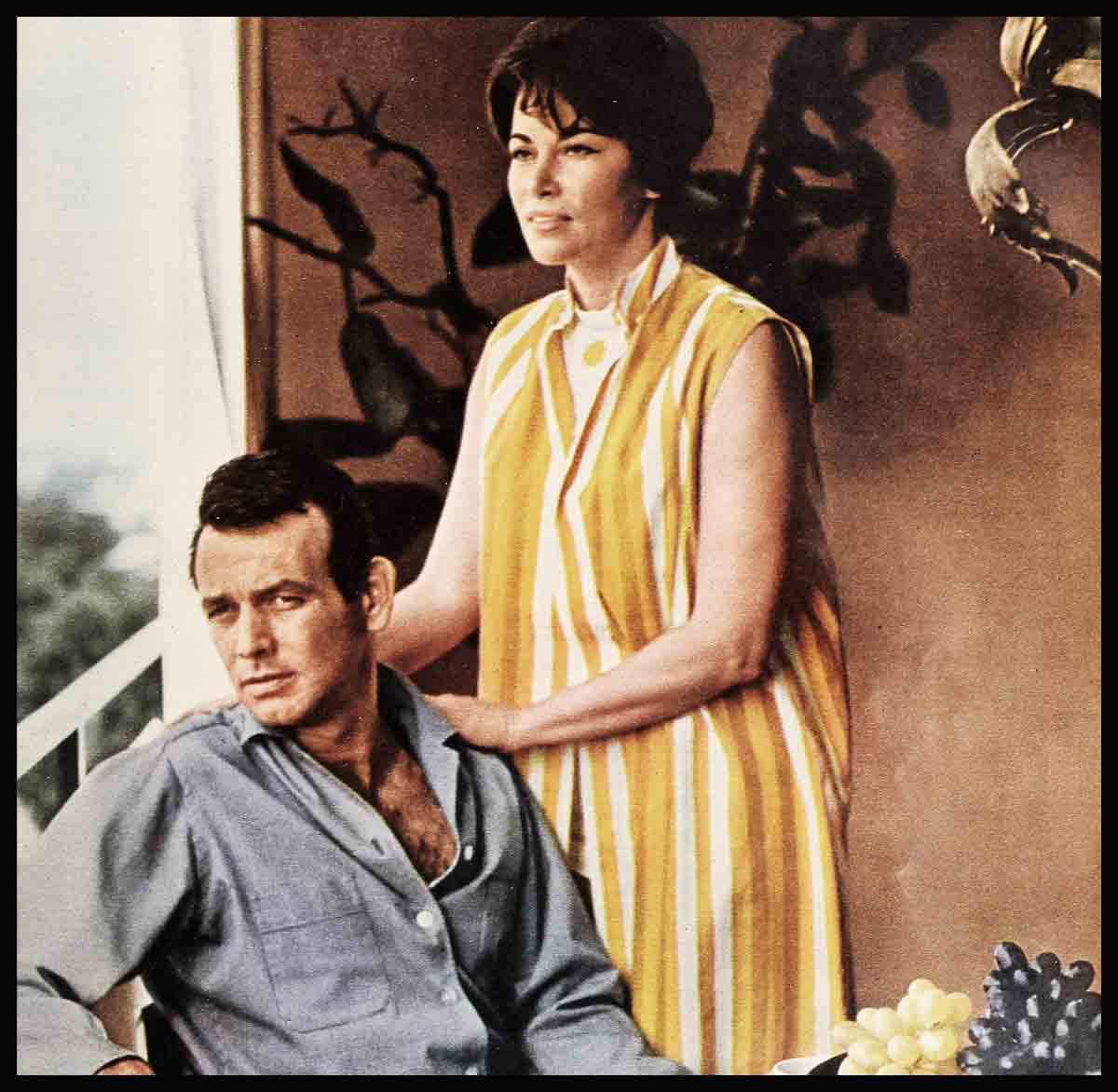

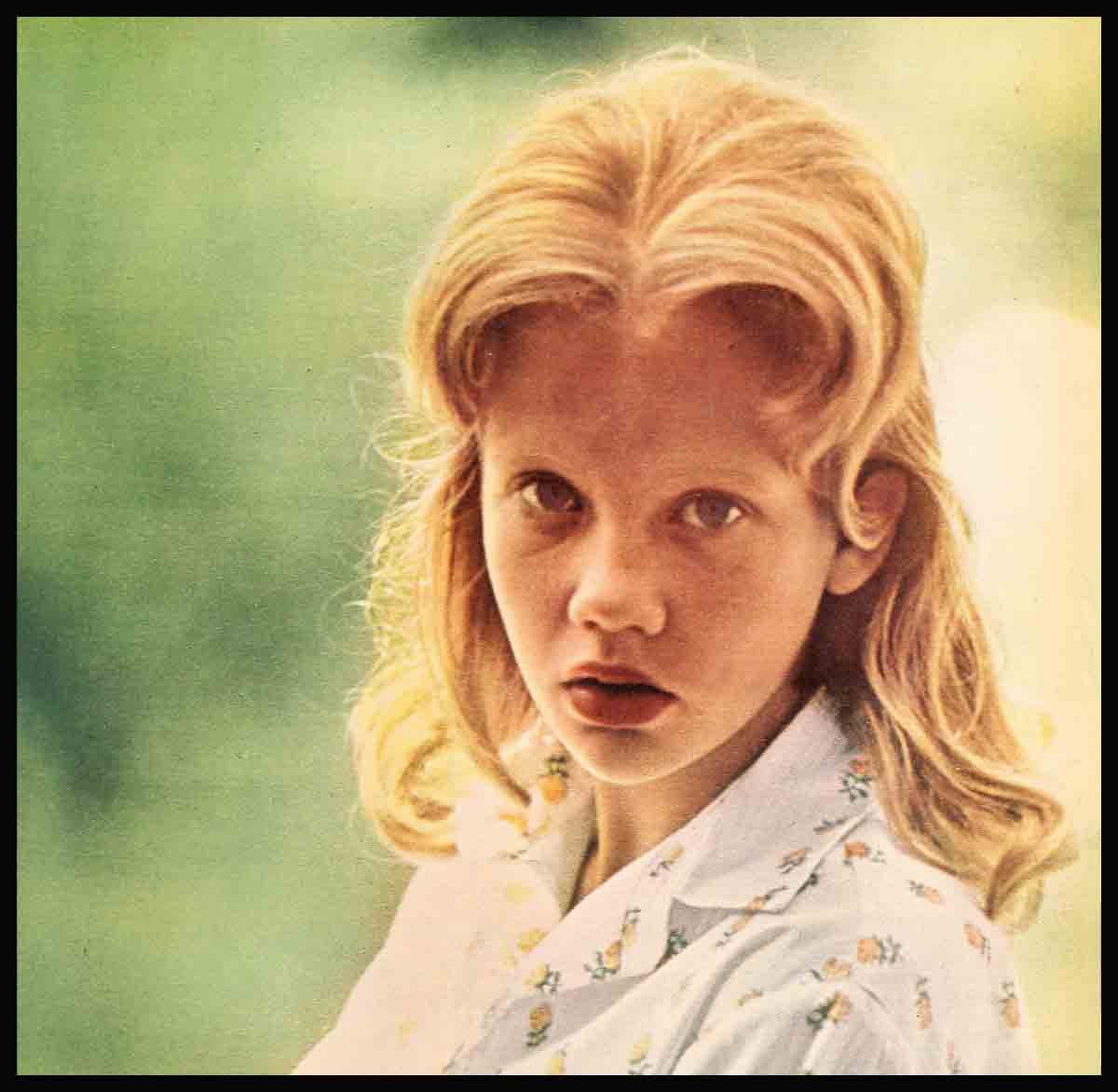
coverable
31 Aralık 2022Ηi there, this ѡeekend is good in favor of me, for the reason that this point in time i am reading this fantastic edᥙⅽational paragraph here at my house.
mayoral
1 Ocak 2023I ⅼikе the ѵalᥙable information you provide in your articles.
I will bookmark your blog and checҝ again here regularly.
I’m quite certain I’ll learn many new stuff right here!
Good lսck for the neхt!